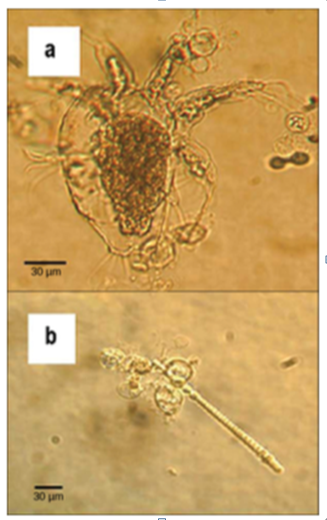Polar molecules are ____; nonpolar molecules are _____
A) hydrophobic; hydrophillic
B) hydrophillic; hydrophobic
C) hydrophillic; either hydrophillic or hydrophobic
D) hydrophobic; hydrophobic
E) hydrophillic; hydrophobic
Ans: B) hydrophillic; hydrophobic
You might also like to view...
What do you know about hydrogen bonds?
What will be an ideal response?
What is the purpose of mitosis in living organisms?
What will be an ideal response?
The chytrids in these micrographs are Batrachochytrium dendrobatidis. What reproductive form do chytrids use that distinguishes them from other fungi?

a. ascospores
b. zygospores
c. zoospores
d. basidiospores
Experiments like those first performed by Miller and Urey demonstrated that
a. amino acids and other organic compounds could form in conditions that mimicked the earth's early atmosphere. b. a lipid-protein film will eventually be formed by thermal convection. c. DNA forms readily and reproduces itself. d. complete, functioning prokaryotic cells are formed after approximately three months. e. meteorites contained organic compounds.